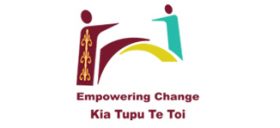Supporting Organisations to become Active Treaty Partners in our modern land of Aotearoa New Zealand
Are you looking for corporate training to work effectively in our bi-cultural relationship with Te Ao Māori?
Tīmoti Harris is an experienced Secondary Principal, Ministry of Education Facilitator, University Lecturer and specialist teacher, facilitator and educator who will tailor-make a programme for organizational change based on strongly inclusive and relational bi-cultural pedagogy.
It is the contention of Empowering Change – Kia Tupu Te Toi that the process which facilitates the unpacking of the content and related facts within the founding documents of our land is one which requires sensitivity, discretion and tact. Further, whilst the subject matter is of great consequence, it needs to be introduced, handled and worked with, with an awareness of and a commitment to the genuine care and nurture of all participants.
“As a facilitator of 35 years and a teacher and educationalist of 45 years experience, I believe that the way to effect attitudinal change, hence professional leadership change also, is to work not just through cognitive empathy but also through affective and indeed compassionate empathy. It is my strongly held belief that genuine and long-lasting change and growth comes when both intellect and knowledge are stimulated by the engagement of the heart. Further I contend that working through a humanistic approach when exploring participants’ attitudes, minimises defensiveness and indeed generates an increased appetite for knowledge and understanding. This in its’ turn empowers attitudinal change.”
In order to observe and action the spirit of partnership and goodwill envisaged by the Treaty of Waitangi, all those who live and work in Aotearoa New Zealand need the opportunity to become bi-culturally competent. Leadership and governance arrangements need to reflect bi-culturalism. Organisational strategies and plans need to be bi-culturally accountable. What does it mean to be a New Zealand organization in a post-Treaty-settlement context?
If we acknowledge that all people in Aotearoa New Zealand need the opportunity to become bi-culturally competent we then also acknowledge that this short statement is yet multi-layered and complex to deliver. Stakeholders all have something to contribute and all need to have their aspirations considered in working to manifest the aspiration of a bicultural vision. Authentic collaboration can result in the co-construction of a plan to meet the needs of your organization, business or kura/school as it works towards the aspirations of a bi-cultural vision.
What does a programme for Treaty Education offer?
The course has a number of delivery options. These course would be discussed and designed in consultation with each organisation including the programme’s content, delivery style and duration.
This course explores everything through stories and contexts Māori for businesses. It explores, discusses and applies our history, while being inclusive regarding Māori context for workplace settings.
It provides ideas and examples of how a Māori world can and should be the rich and vibrant aspect of organisations in this land. This is a course which examines and applies culturally responsive practices; and can support organisations through a review and redesign of their practices. Some leaders are challenged to improve or grow their cultural competencies and responsiveness.
“It is my profound belief that there is no greater catalyst to change than engaging people in authentic experiences and sharing stories and information in a way which allows them to connect their learning to their future actions.” Tīmoti Harris
Some options for programme or course delivery are:
• A one-off learning workshop
• A series of learning workshops
• Two or three-day marae stay/noho experiences
• Whole staff courses of 2-3 hour sessions every five weeks for one year, two years or three years
• Bi-cultural Leadership team development sessions and/or retreats
Corporate Leaders are encouraged to meet and talk with the facilitator or facilitators and then co-construct the programme, content and outcomes according to their needs and resources.

